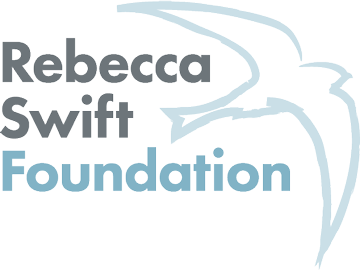
For many poets, paid time to be in residence at a particular location or organisation is the ultimate dream job. Time to think and write new things, or to build new ways of working with others – no wonder Jo is familiar with the question
“So, how did you get this residency?“
It’s a question I’ve been asked each time I’ve been a poet in residence: at Glastonbury festival, at the Royal Derby Hospital, at Stratford upon Avon river festival, at the world’s best bookshop*, and at museums or other institutions. Each residency teaches me a little more about working with clients, and often about poetics too.
The kind of residency I mean here is a time-limited partnership (paid or not) between the writer and an organisation. Let’s say the Museum of Beetles wants a poet in residence. They advertise, offering £2000 for four visits and a handful of poems or workshops. The person appointed visits the museum, with special access behind the scenes. She writes about beetles, entymologists, phobias, the ethics of beetle display or the famous dress that Lady Curzon wore, decorated with beetle carapaces (that one is real, you’re welcome). The poems are used in press releases, stencilled onto the walls, used in marketing or physical displays, recorded for broadcast or used in online content.
When such residencies are advertised, it is a competitive market. Dartington historic gardens recently called for a poet in residence, and got over 300 applications. Agnes Finlayson, their press officer, explains that the gardens reopened to the public only last year. For them, a poet in residence is wholly appropriate. ‘Dartington was established in the 1920s as an experiment which fostered many great artists and activists: we wanted to continue this tradition by offering a poet the space to explore their practice in this very special place.’**
You might equally land a residency through an existing contact, who spots a good match between an organisation and a writer. I live on a boat, so when that river festival wanted a poet and a friend of mine was doing the programming, I probably sprang to mind. I had access to the culture and language of boat-dwellers, and good connections with Stratford. I got payment, and a month’s mooring in the lovely canal basin there, in return for my performances.
But the best way to get a residency – and I cannot stress this enough – is to build one yourself. Too often, we writers sit meekly beside an open door, complaining that no-one has invited us in. Don’t wait to be asked. Find organisations you want to work with, and offer yourself up. If there is a musician or artist you want to work with, put together a joint proposal. Say what you want to do, cost it (allowing for your paid writing time) and seek out potential partners. A paragraph-long proposal is easier to write than a poem. Choose a local organisation; maybe do a small, unpaid residency at a place you love, to find your feet. You could even do a virtual residency. My first one was an unpaid ‘residency’ with a Peak District tourist website, writing monthly poems about the Derbyshire landscape in return for (yup) exposure.
Most organisations you approach will think you a harmless lunatic. They won’t usually have worked with a writer, and will be absolutely ignorant of what we can do. You are not asking but pitching, so speak confidently. Suggest outputs – back at the beetle museum you might do postcards for their shop, workshops with schools, a poem projected onto the building, a streamed performance with the National Insect Orchestra. If they say ‘No’, say thank you. If they say ‘Yes, but we have no money’ offer to help with a funding application. If they say ‘A what?’ explain to them what a poet in residence is. Then ask them again.
If successful, you will need to set boundaries. One client thought four poems a day would be realistic; others expected to insert phrases or slogans into the poems. You are not a copywriter, but a creative writer. Be prepared, too, for flak and negative press when you work with any kind of public organisation. As canal laureate, I spent half of my time explaining why the money that had been spent on me could not have been spent on dredging the waterways.
Residencies can be enlightening, highly publicised, and an engine for change in your poetry. Whatever your life experience is, it lends itself to some partnership. Soil scientist, homemaker, lawyer, wheelchair user; there is some trade organisation, conference, charity, local attraction or business that you could work with. Once you accept that you can steer your own path in this way, the opportunities are limitless. Poetry has little enough to recommend it as a way of making a living, so seek out people and institutions whose interests tally with your own. Write yourself an opportunity, sisters.
Jo Bell
*Scarthin Books in Cromford, Derbyshire. Obviously.
** Dartington has appointed their poet – congratulations Ella Frears!
Jo Bell has won poetry awards, performed in venues from takeaway vans to the House of Commons, and is known for online workshop ‘happenings’ like the 52 project which brought together a global writing community. A former archaeologist, Jo sometimes works in heritage settings to make new histories. In 2013 she was given an honorary doctorate for her services to poetry.

